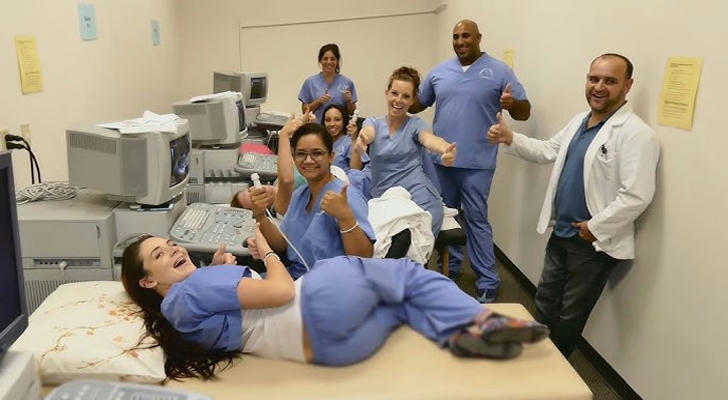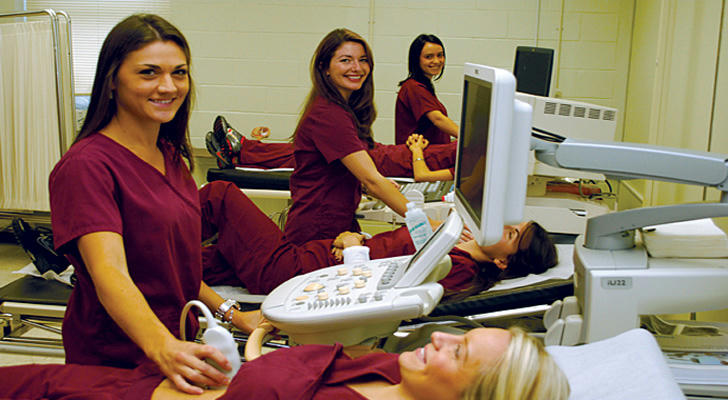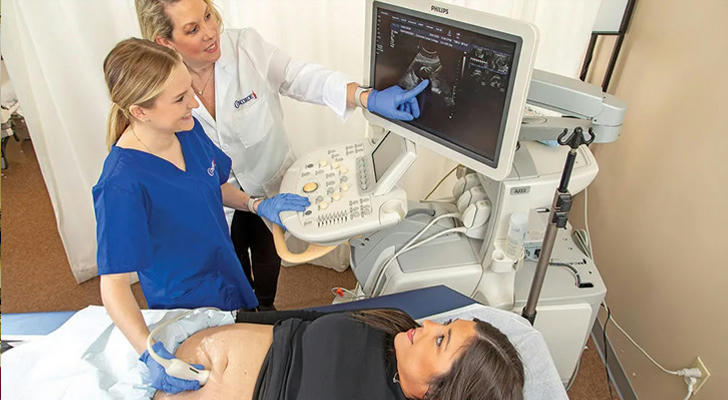Government-Supported Ultrasound Technician Training: Learn While You Earn and Start a Rewarding Career
Ultrasound technicians, also known as diagnostic medical sonographers, play a crucial role in the healthcare industry by operating imaging equipment to create diagnostic images that assist physicians in evaluating patients. The demand for qualified ultrasound technicians is steadily increasing, making it an excellent career choice. Fortunately, in the United States, there are government-supported programs that provide affordable training for those interested in becoming ultrasound technicians. These programs offer an opportunity to earn while you learn, catering to various age groups, and providing a stable career path in the growing healthcare sector.

Why Choose Government-Supported Ultrasound Technician Training?
Becoming an ultrasound technician through a government-supported program offers numerous advantages, such as the ability to earn an income while receiving training. This approach allows you to gain practical experience in a hands-on environment while reducing the financial burden of tuition fees. Many of these programs are flexible, making them accessible to a wide range of people, from recent high school graduates to those transitioning in their careers. In addition to the financial benefits, ultrasound technicians enjoy a well-paying and stable career with opportunities for advancement.
Ultrasound Technician Training for All Age Groups
Young Adults (18-24 years old)
For young adults, especially those who have recently graduated from high school or are looking for an alternative to traditional four-year college education, ultrasound technician training is a great option. Through government-Supported training programs, young individuals can begin their career path with minimal upfront costs while earning money as they learn. Many apprenticeship programs offer hourly wages during training, which can range from $15 to $20 per hour, increasing as skills and experience grow.
Middle-Aged Adults (30-50 years old)
For middle-aged adults seeking a career change, ultrasound technician training offers a chance to enter a high-demand, high-paying field. Many middle-aged individuals take advantage of government programs to retrain and begin a new professional journey. These training programs are often flexible, allowing them to balance personal responsibilities and work while gaining the skills needed to transition into the healthcare industry.
Older Adults (50+ years old)
Older adults who are looking to make a career switch or re-enter the workforce can also benefit from ultrasound technician training. With the growing demand for healthcare professionals, older adults can join government-supported programs to learn new skills and secure long-term employment. These programs are ideal for individuals who want a stable career and appreciate flexible work conditions. Many training programs also cater to older students, offering support throughout the learning process.

What You Will Learn in Ultrasound Technician Training
Ultrasound technician training typically combines classroom instruction with hands-on clinical experience. Here are some of the key skills and knowledge you will acquire:
Basic Ultrasound Imaging Techniques: Learn how to operate ultrasound machines and use various types of probes to capture high-quality diagnostic images of organs, tissues, and blood vessels.
Patient Care and Communication: Understanding how to properly interact with patients, explain procedures, and ensure their comfort during the imaging process.
Anatomy and Physiology: Learn about the human body’s systems, structures, and functions to accurately interpret ultrasound images.
Safety Standards and Best Practices: Gain knowledge of safety protocols, including how to maintain equipment and follow proper hygiene standards.
Medical Terminology: Learn the essential medical terms related to diagnostic imaging and patient care.
Benefits of Completing the Training
High Salary Potential
According to the U.S. Bureau of Labor Statistics (BLS), the median annual wage for ultrasound technicians is about $75,000. Experienced professionals can earn upwards of $90,000 per year, with some specialties such as cardiac and vascular sonography offering even higher wages. In certain areas with high demand for healthcare professionals, salaries may be significantly higher.
Job Stability and Demand
The demand for ultrasound technicians is expected to grow by 12% from 2019 to 2029, which is much faster than the average for all occupations. This growth is attributed to an aging population and an increased need for diagnostic imaging services. Ultrasound technicians are essential members of the healthcare team, ensuring job stability and long-term career prospects.
Career Advancement
Upon completion of training, ultrasound technicians can pursue certifications in specific specialties, such as obstetrics and gynecology, cardiac sonography, or musculoskeletal sonography. With additional certifications, ultrasound technicians can earn higher salaries and take on more advanced roles within healthcare organizations.

How to Apply for Government-Supported Ultrasound Technician Training
Find Available Programs
Visit websites like Apprenticeship.gov and CareerOneStop to search for government-supported ultrasound technician programs. Many programs are listed along with their requirements, location, and application instructions.
Check for Financial Assistance
If you are unsure about the cost of training, check if the program offers financial assistance or if there are any government grants or scholarships available. You may also explore options like the Workforce Innovation and Opportunity Act (WIOA) for additional Supporting.
Prepare Your Application
Most programs require a high school diploma or equivalent. Be sure to submit all necessary documents, including transcripts, a resume, and letters of recommendation if required. Some programs may also ask for a background check or health screening.
Interview and Selection
Some programs may require an interview as part of the application process. Be prepared to discuss your motivation for entering the field, your learning goals, and how you plan to balance work and study.
Complete the Training
After being accepted into a program, you will engage in both classroom education and clinical training. The program typically lasts from one to two years, depending on whether you are pursuing a certificate or an associate degree.
Real-Life Case Study: Sarah’s Career Change
Sarah, a 45-year-old mother of two, was working in retail but was ready for a career change. She found a government-Supported ultrasound technician training program through the CareerOneStop website. Sarah enrolled in a one-year program at a local community college, where she learned to operate ultrasound equipment and gained valuable patient care skills.
During her training, Sarah earned an hourly wage through an apprenticeship program, allowing her to support her family while learning. After completing the program and obtaining certification, she secured a full-time position at a hospital, where she now earns $72,000 per year. Sarah is grateful for the opportunity to change careers and provide a stable future for her family.

Conclusion
Government-supported ultrasound technician training offers an excellent pathway to a high-paying, stable career in healthcare. Whether you are a young adult, a middle-aged individual seeking a career change, or an older adult looking to re-enter the workforce, ultrasound technician programs cater to a wide range of people. The ability to learn while earning makes it an attractive option for those looking to gain practical experience and financial independence. Apply today to take the first step toward a rewarding career in the growing healthcare industry!
